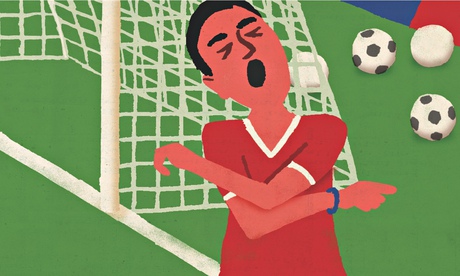
Not long ago, Scott Adams, creator of the immensely successful Dilbert cartoons, published a memoir/self-help book entitled How To Fail At Almost Everything And Still Win Big. It’s a bit irritating, to be honest. Adams writes amusingly about stumbling through a series of early jobs in banking and telecoms, despite being a “totally skill-free” bullshit artist – but then claims he was fired, many times, because he hit “the diversity ceiling”, being too white and male for his politically correct bosses. The reader can’t help wondering if the real reason wasn’t that he was totally skill-free: it’s odd to boast so jovially about one’s incompetence at a job, then blame sinister social forces when you lose it.
Still, I like to imagine I’d spot a profound insight into human behaviour even if it came from, say, Paul Nuttall of Ukip, so let me set aside Adams’ views on political correctness (I suspect he thinks it’s “gone mad”) and acknowledge that his book contains one very useful bit of advice: when you’re trying to get better at something – a creative skill, such as cartooning, or a habit, such as regular exercise – think in terms of systems, not goals.
As anyone whose employer foists “performance targets” upon them already knows, a fixation with goal-setting has many downsides. But Adams adds one more: when you approach life as a sequence of milestones to be achieved, you exist “in a state of near-continuous failure”. Almost all the time, by definition, you’re not at the place you’ve defined as embodying accomplishment or success. And should you get there, you’ll find you’ve lost the very thing that gave you a sense of purpose – so you’ll formulate a new goal and start again.
A system, by contrast, is “something you do on a regular basis that increases your odds of happiness in the long run”, regardless of immediate outcome. Drawing one cartoon a day is a system; so is resolving to take some kind of exercise daily – rather than setting a goal, like being able to run a marathon in four hours. One system that’s currently popular online goes by the name “No Zero Days”: the idea is simply not to let a single day pass without doing something, however tiny, towards some important project.
It’s true that this way of living brings fewer of those moments of fist-pumping triumph that come with the achievement of a goal. Plus it can be hard to tell, on any given day, whether your system’s working. But the payoff is a more predictable supply of regular, smaller happy moments: while goal people usually languish in a state of non-accomplishment, Adams notes, systems people “succeed every time they apply their systems, in the sense that they did what they intended to do”.
Above all, focusing on a system means focusing on what you can control (your actions) rather than what you can’t (the endlessly unpredictable external world). Keep working your system and you’ll maximise the chances that success will find you. Live in pursuit of goals and you’ll feel like a failure even when you’re succeeding – and even a fully paid-up member of the PC brigade like me can see that that’s just stupid.
oliver.burkeman@theguardian.com
Follow Oliver on Twitter

